Features
Billy Sherwood: The Daily Vault Interview (2015)
by Jason Warburg
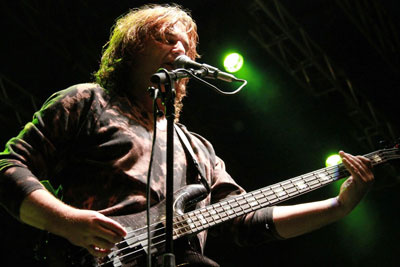
It’s been a hell of a year for Billy Sherwood, in more ways than one.
The peripatetic multi-instrumentalist-vocalist-composer-producer was more or less minding his own business this spring—working on three albums of new music at once in between outside production and mixing jobs—when he learned that his longtime friend and mentor Chris Squire, bassist and harmony vocalist for progressive rock pioneers Yes, was seriously ill.
Billy’s association with Yes stretches back three decades and includes writing songs with Squire for 1991’s Union and YesYears releases, touring with Yes in 1994, producing the Keys To Ascension albums in 1995-97, and joining the band from 1997-2000 for the Open Your Eyes and The Ladder albums. In subsequent years he continued to work with Squire in their side project Conspiracy, formed Circa with Yes veterans Tony Kaye and Alan White (and friend Jimmy Haun), and contributed mixing and production work to various Yes projects, most recently including the albums Heaven & Earth, Like It Is: Yes At The Bristol Hippodrome and Like It Is: Live At The Mesa Arts Center.
Over the past 15 years, Sherwood has also kept up a steady pace of solo releases, on which he typically plays all the instruments—guitar, keyboards, bass and drums—in addition to composing and singing every note. His new solo album, for the first time featuring guest players, is a concept album about a person—The Citizen—who is reincarnated through time and witnesses key moments in human history.
While Sherwood was recording Citizen this spring, Squire told his friend that he was seriously ill and asked him to take his place on Yes’ upcoming summer tour. Sherwood immediately agreed and was preparing for the tour when Squire’s condition worsened. On June 27, he passed away. (For more on Squire’s remarkable career, see “Chris Squire: An Appreciation.”) The Yes tour began on August 7, with Sherwood stepping into Squire’s role as bassist and harmony vocalist.
Today Sherwood is moving forward again, releasing his new solo album Citizen—which includes Squire’s final recorded performance—while continuing to work on several other projects and looking ahead to additional live dates with Yes, which he has formally rejoined.
In an interview focusing on a year that we agreed felt “surreal,” Billy and I spent time looking ahead as well as back, considering both the path that brought him here, and the myriad possibilities the future still holds. And if we bounced back and forth a few times between sadness and joy, heavy thoughts and silly laughs, well, isn’t that a lot like life?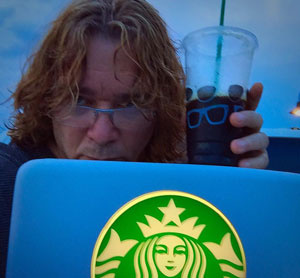 The Daily Vault: So—if I’ve got this right, in the past year you mixed a Yes DVD, composed and recorded a new solo album, composed and recorded a new Circa album, started recording a new World Trade album, did a bunch of other production and mixing work, and toured with Yes. So, I think the question on everyone’s minds is: just how much coffee do you actually drink?
The Daily Vault: So—if I’ve got this right, in the past year you mixed a Yes DVD, composed and recorded a new solo album, composed and recorded a new Circa album, started recording a new World Trade album, did a bunch of other production and mixing work, and toured with Yes. So, I think the question on everyone’s minds is: just how much coffee do you actually drink?
Billy Sherwood: [Laughter] Well, it’s a combination of coffee and the fact that I just love making music. And I love working in the studio and tinkering around with stuff, playing different instruments, and all that combined makes it so that I tend to do a lot of things in a year. It’s a blessing to be able to do what I do, and I’m very happy that the work is there and the outcome is something that people always seem to enjoy, which is important. It’s all good!
Let’s start with your new solo album Citizen. Where did the concept for the album come from?
The idea initially developed out of a notion that came from the famous World War II general George Patton. He believed he had been reincarnated from past military leaders on various battlefields, which is what he thought gave him such good insight and instincts, and I found that idea of one person being present during many different important moments in history to be an interesting concept in its own. When I was thinking about a theme for this project, that idea came into my head and I thought, what about turning that idea into a character called The Citizen, who we follow through time and history. I’m very proud of the album, and there’s a lot of great artists on there as well who’ve lent their talents and raised the bar for the whole thing, which is really exciting.
On most of your solo albums, you’ve played and sung everything yourself. How did bringing guest players into the mix change the dynamics from your perspective?
I’ve done a lot of records with various artists contributing [including tributes to Pink Floyd and Led Zeppelin, as well as all-star combos like The Prog Collective] over many years now, going back to the Paul Rodgers record in 1993 [Muddy Waters Blues: A Tribute To Muddy Waters], so for me working in that way is very natural and easy. I usually do play everything myself on my solo albums, but on this one it was a different production style, and a concept album, so I decided to invite guests in too. It was unique and different in its way, but also very easy for me.
I always make the records in their entirety first so I can see what I’m looking at as a project. I play a bunch of instruments [guitar, bass, drums, keys], so I can create the big picture before I know who I’m going to send tracks out to. Then I can look back at this semi-completed picture and say, okay, this guy would fit perfectly on this, this other guy’s going to be great on that one, and just start dishing out the files and letting them do their thing. The other thing about inviting these kinds of artists onto a record is that they know exactly what to do, so I don’t have to say much to them. They know what to do naturally, which is what I love about these guys. All these amazing players—Rick Wakeman, Patrick Moraz, Colin Moulding, Alan Parsons, Steve Morse, Steve Hackett—who’ve done what they’ve done for decades, to get their spirit on this record is really something special.
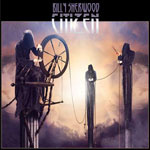 It’s an amazing lineup. I wanted to ask about Colin Moulding, who did a great job handling the lead vocals on “Just Galileo And Me.” How did you connect up with him?
It’s an amazing lineup. I wanted to ask about Colin Moulding, who did a great job handling the lead vocals on “Just Galileo And Me.” How did you connect up with him?
I’ve been working with Colin here and there on various projects for many years now. I reached out to him years ago on another record I made [2006’s Return To The Dark Side Of The Moon: A Tribute To Pink Floyd] and asked him “Would you come on board this project? I’d love to work with you and I love your voice and I’d like you to sing this song, although it’s proggy and kind of lengthy and a little outside of the norm for you… would you want to take a listen?” And he said “Sure, man, send me the thing.” And ever since then we’ve had this working relationship.
He’s a super sweet guy and obviously an amazing talent—I love XTC, I’m a huge fan of that band—and he’s been on several records I’ve made over these years [including the recent Sherwood-produced album by neo-proggers Days Between Stations] and when I wrote “Just Galileo And Me” I was really thinking of him singing it, so when I was finished I sent it to him and said “I hope you’ll dig this, because I was really imagining your voice on here,” and he wrote back and said “I love this! Send me the files, I’m ready to go.” So it was cool—we were definitely on the same musical wavelength on that song.
The album includes the last recorded performance by Chris Squire, playing bass on the title track. Did you have him in mind for that track when you were working on it?
Yeah, I pictured Chris on that song when I was composing it, because it was the first song on the record and really sets the stage lyrically for what the album is going to be. It invites the listener in to understand where the whole thing’s going to go, and the musical backdrop for that is this big, powerful, grandiose piece that also delivers the musical themes that are threaded through the whole album. And the power source of that track is the rhythm section, just holding down those huge grooves and big notes, and I was picturing Chris on that from the word go. When I played it for him, he was like “Yeah, I’m into this, let’s do it.”
So I went up to his place in Arizona, and I stayed at a Holiday Inn close to his house and we set up shop in the Holiday Inn, I had my mobile studio, and he stood there and played five-string bass and played great. He seemed to be in great health and great form and we hung out for the weekend. We just talked about a bunch of stuff and laughed about things like we always did, and everything was normal. And then when I came home, I called him a few days later to say thank you and how much I appreciated him playing on the record and that’s when he told me the horrible news. And the rest we all know, which is sad.
Yeah. Of course. And I want to come back to your friendship with Chris again a little later on. Along with the other folks you mentioned, Citizen features four different keyboard players from Yes (Tony Kaye, Rick Wakeman, Patrick Moraz, Geoff Downes). And it made me wonder—at this point, is there anybody left in the entire Yes family tree that you’ve never worked with?
[Laughter] You know, I was thinking about that the other day because someone asked me that same kind of question, and my first thought was “No, I don’t think there is!” Or at least, it’s close. I’ve worked with pretty much everyone who’s been in the band with the exception of maybe Tom Brislin [keyboardist on the band’s 2001 symphonic tour] and Benoit David [lead singer on 2011’s Fly From Here album and associated touring]. I was very lucky and honored to have Bill Bruford play on a tribute that I did to Pink Floyd one year [again, Return To The Dark Side Of The Moon]. That was his last year playing drums, so I caught him just in the nick of time! [Laughter]
Tom Brislin’s great—I hope you get to play with him sometime.
Yeah, me too. I saw him on the Yes tour this summer. We hung out and I got a great picture with Patrick Moraz, myself and Tom [which you can find on Billy’s Facebook page]. Really nice guy.
You’ve mentioned wanting to bring the songs on Citizen to the live stage. Can you tell us anything more about those plans at this point?
I can say that I’ve pretty much built the core band that I believe can hold down the fort, so to speak, to cover the entire record. The idea I have is that we’ll invite some guest artists to come and play some shows, depending on schedules and where people are with their own artistry—that’s going to be a factor, so I don’t really know who’s committed yet. But that’s the idea, and I’ve reached out to some people who are very interested and say “If the schedules permit, I’m there.” So that’s the idea, and management is in place and the agents are getting together and the label’s supporting it, so… I want to do it for sure, between all of the Yes stuff that’s going on, and I think it’s going to happen.
You also just released a collection of highlights from your solo catalog. 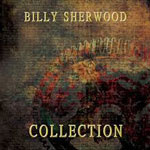
Yes, it’s sort of a “best of” record, one song from each of my seven solo albums compiled on a record called Collection. It also has two bonus tracks on it, an original song that I wrote and a cover of a Sting song that I did just because I love Sting. I don’t talk about it a lot, but I love the Police and Sting’s a huge influence.
You also mentioned on Facebook recently that there’s a new Circa album just about ready to go.
Yeah—it’s coming out on Frontiers Records sometime next year, and it’s called Silent Resolve, and there are four songs on the record, which gives you an indication of what it’s going to be like, in terms of prog influence. We in the band are really excited about it and very proud of it. I’m playing guitar in that band, with Ricky Tierney on bass, who does a fantastic job, and Scott Conner on drums, and of course Tony Kaye.
Did you and Tony collaborate on the songwriting again?
Yeah, we did, and there’s some really cool things on there, one very big epic piece, and a bunch of other very cool musical moments. Tony and I collaborated and worked very closely together on the whole thing.
You’re also working on a new World Trade album with the original lineup. It sounds like you’ve stayed friends with the whole group through the years, but what inspired you guys to get together and make a new World Trade record right now?
That would be Derek Shulman’s doing. He signed the band originally way back when, loved the band and was always a fan of it. We’ve been friends through the years ever since and he’s always talked about doing another World Trade record, and now he’s involved with Frontiers Records, and it’s coming out on Frontiers.
We’re going to try to finish the album when I get back off the road from the Yes shows next month—we’ll work on it through December and January. We’ve already got about half of it in the can and it sounds amazing and just like World Trade should sound. It’s very exciting to get back together with the guys and do it after all these years. It’s been a long time, but it feels like we’re picking up right where we left off, and it’s really exciting to hear.
When we talked in 2007, we covered your long history with Yes, and while most longtime fans knew exactly what was going on, there must have been some casual fans who came to the shows this summer and said “Who’s this Billy Sherwood guy, anyway?” When in fact you’ve been connected with the band for almost 30 years now.
Well, that’s the way things work with a band that’s this big, with such a rich history. There’s a lot of fans who’ve been there from the beginning and who’ve never let go, and there are other fans who’ve followed Yes casually and loved the band but don’t quite know the details of things like you and I do. I’m just honored to be doing what I’m doing, especially after Chris personally asked me to do it. That’s very special. And those fans who have been following along and know the history have been amazingly supportive of this whole transition through this really difficult time. They’re supporting the band in an amazing way, and I think the casual fans who are coming to the concert because Yes is in town are realizing what’s happened and are walking away smiling and encouraged about the future for Yes.
It’s obviously shocking as hell for all of us that Chris isn’t there, but Chris wanted the band to go forward without him. That was one of the things we talked about a lot when he was sick, and I’m just happy to be there and do what I can to make his wish a reality and help Yes. Whatever happens, I always want the best for Yes, whether I’m in it or not. At the moment, I’m here and happy to be involved, and I’ll be here until further notice.
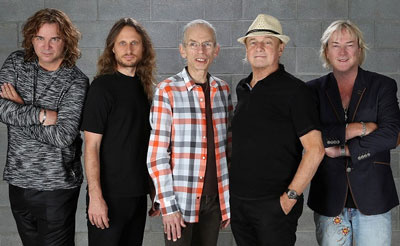
Yes: Billy Sherwood, Jon Davison, Steve Howe, Alan White, Geoff Downes.
If we could rewind the tape all the way to the beginning for a moment, I’m curious about how you first connected up with Yes. I understand it might have been through Derek Shulman [former bassist for Gentle Giant, later a record label executive].
It was indeed Derek Shulman. Back in the ’80s when World Trade was doing its thing, Derek signed us to Polydor. Then [in 1988] he became the president of Atco Records, where he was working with Yes when they were without a lead singer, because Jon Anderson was doing Anderson Bruford Wakeman Howe. After Derek moved to Atco, he connected me with Chris.
Chris had heard the demos for World Trade and thought they were intriguing and interesting, and one thing led to another and we met. At that point everyone was convinced I was going to be the new lead singer of Yes—everyone except for me. I was the only one who said “No, I’m actually not going to be doing that…” [Laughter] Much to people’s surprise! But it just wasn’t something I wanted to do. Despite that, my relationship with Chris remained strong, and I met all the other guys, and the rest is history. I’ve had a long relationship with the band, but that’s how it began.
What was it like, meeting Chris for the first time? What were your first impressions of him?
He was my hero, my mentor and a guy I looked up to. He was someone who made me think, “That’s what I want to do in my music career, play bass with that kind of ability, and sing, and have that kind of presence and uniqueness.” That was something I always tried to strive for in my own bands, to have that kind of unique voice inside the unit, which drove some of my fellow band members nuts. They’d say “You’re playing too busy!” And I’d say “Well, Chris plays busy, so I have to do it!” [Laughter]
It was an amazing meeting, and Chris and I got along instantly. We had very similar personalities in terms of what we liked musically and on a cultural level with films and TV shows. We would just get together and laugh a lot about things and work on music and it was a great relationship, very pure, simple, to the point. We just got along.
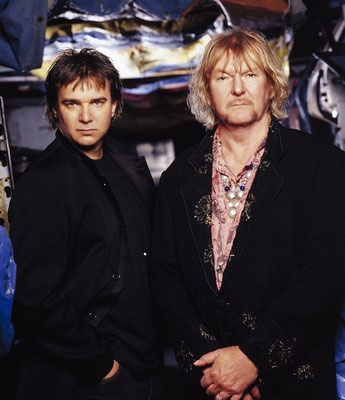 And then you started writing songs together.
And then you started writing songs together.
Yeah, the idea was, we were put together by Derek to see what would happen on a writing level, and we wrote “The More We Live – Let Go,” which is on the Union album. That was the first song we ever wrote, which is an extremely special song. We both knew from that point, if that’s what we produced in our first shot at writing together, we should keep on it and see where this goes. And so we just went forward from there.
“The More We Live – Let Go” is my favorite track on Union.
Yeah, it’s a lot of people’s favorite, which is funny—for the very first song we ever wrote together, it worked out quite well.
Skipping over all the years in between—which we talked about a lot last time—I’ve sat here over the last few months and tried to comprehend what this year must have been like for the band, and for you, with Chris’ illness and really very sudden passing, and then you rejoining the band. And I kind of run out of adjectives after “emotional” and “surreal.”
Yeah. Surreal is pretty much the word I use. From my particular perspective, there’s a lot of ways to describe it. It’s sad. It’s exciting. It’s a bummer. It’s a blast. It’s everything in between. Chris wanted me to take his place with a smile on my face, and deliver the goods, so to speak, but it’s easier said than done.That last tour was one of the most difficult situations, emotionally speaking, that I’ve ever dealt with because there I am, standing in my friend’s spot, who’s no longer alive. It’s constantly on your mind as you’re playing the music, of course, so I would find myself drifting off, thinking about things I shouldn’t be while I’m on stage trying to entertain people. As the tour progressed, I tried as best I could to smile and be happy, but the reality was it was very sad at a lot of moments to be playing this music, singing his parts and thinking about him and what just happened.
It was very heavy. There’s no way around it, it was just very heavy.
As a fan myself, I feel like you were the absolute right person—probably the only person—who could take on his role, playing bass and singing harmony.
I appreciate that. That seems to be kind of a common theme. I know there’s a lot of people out there who know these parts just like I do and play them every day and could stand with the band and play, but it’s a unique band, and as we all know, it’s not all about the music, the personalities have to jell for the thing to survive. I’ve known these guys for a long time now, so it’s sort of like returning to your summer home—you might not be there all the time, but when you get there, it’s familiar landscape.
What can you say at this point about what’s next for Yes, and the conversations that have been happening?
Right now, November is Cruise to the Edge, and we’re doing three other shows in Florida before that, and we’ll be touring in Europe in April. From what I can gather, it looks like there’s more things on the horizon next year, nothing I can really speak about yet, but I’m seeing it developing, and it looks good for Yes to be doing a lot of things next year, so that’s exciting to see.
No one was sure if this was going to work, you know? Especially me. No one knew if the fans would accept this or reject it. They seem to be not only accepting it, they’re rallying around the band in support of it and they want more, and that’s where it all begins—without the fan base, you don’t have anything. It’s a blessing in this case that Yes has such amazing fans, really devoted, loving people who want to see it thrive. It’s a team effort between band and fans at this point. I’m happy to say that it looks like things are moving in the right direction.
Last question. In 1991, Rick Wakeman said he could imagine a Yes with none of the original members left, a group that would exist simply to carry the band’s musical legacy forward. It was pure speculation back then, but it feels like it’s getting a lot more real now. As both a member and a fan of the band, which I know you are, what are your hopes and dreams for the future of Yes?
You know, maybe one day there’ll be some guy that I’m telling “Here, take this, go!” [Laughter] I don’t know. Right now, I’m involved in it, and while I’m not an original member, having been around it for almost 30 years now I’ve certainly got the stars and stripes and scars to prove that I was there, so there’s still a link to the Yes that fans are familiar with.
As far as a completely different cast of characters playing the music, only time will tell. It is great music, there’s no doubt about that, and I believe like Rick did and Chris did, and Jon [Anderson] has spoken about it as well, that the music is something that will survive the test of time and be played for many years to come. Who knows, maybe in 50 years you’ll be going to watch Yes and it’ll be these robotic, Chappie-looking characters up there playing, and nailing it! [Laughter]
All I know is, it’s all about the music—and the music’s great.
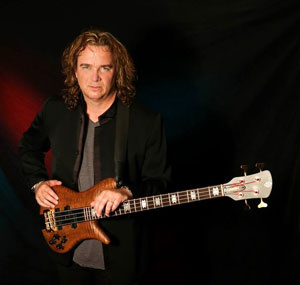
[Thanks to the inimitable Anne Leighton for arranging this interview.]